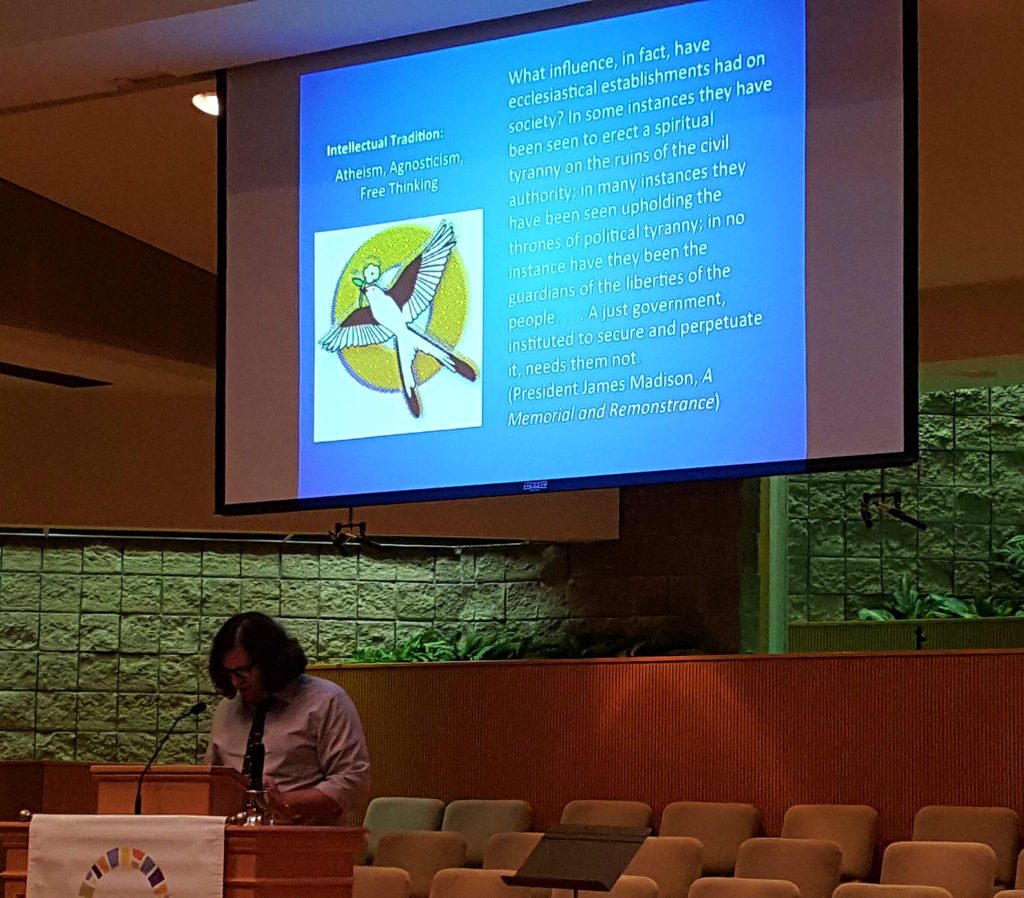Yesterday was the National Day of Prayer, which is (unofficially) an annual celebration of trolling true believers on the internet.
The best thing about #NationalDayofPrayer is that poverty, hunger and war, are now a thing of the past. Thanks, prayers, you did it.
— A_T (@Atheist_Tweeter) May 5, 2016
https://twitter.com/BettyBowers/status/728300128851873792
Happy #NationalDayofPrayer! Your prayers will be ignored in the order they're received. #NothingFailsLikePrayer
— God (@almightygod) May 5, 2016
Not everyone was so lighthearted. Some secular organizations were quite stern and straightforward in their messaging.
It's time to end the #NationalDayofPrayer. That sort of exclusionary divisiveness has no place in our government. pic.twitter.com/md4gWAVMCB
— American Atheists (@AmericanAtheist) May 5, 2016
Today is the #NationalDayofPrayer. pic.twitter.com/MxEEmu9PFk
— FFRF (@FFRF) May 5, 2016
Blog: #NationalDayofPrayer is inherently sectarian. It doesn't represent all Americans. https://t.co/Tj1ITmT3oJ pic.twitter.com/jrsD85z1lF
— Americans United (@americansunited) May 5, 2016
My own atheist group took a somewhat different tack, attending an interfaith event at a local Baptist Church.

I must admit certain misgivings about stepping foot in a church, but these were quickly alleviated as I got to visit with a few old friends, including half of the plaintiffs from our state’s infamous Ten Commandments case.
The event itself was structured in a way which I consider worthy of emulation and repetition. The attendees were divided into several small groups, each of which had several people designated to represent for their respective faith communities. In my particular small group we had a Hindu fellow, a Jewish woman, a Muslim activist, a Christian minister, an outspoken atheist (not me), and a Unitarian Universalist who seemed uniquely unfazed by the amount of religious diversity in the room. Each of the designated participants took turns explaining a bit about their faith (or lack thereof) with particular emphasis on misconceptions widely held by those outside the community.
The small group breakout session was followed by the annual bell-ringing ceremony, in which representatives of a dozen faith communities each took turns reading a passage of vital importance to them, typically along the lines of ecumenism. Our own representative chose a salient passage from James Madison’s Memorial and Remonstrance Against Religious Assessments:
What influence in fact have ecclesiastical establishments had on Civil Society? In some instances they have been seen to erect a spiritual tyranny on the ruins of the Civil authority; in many instances they have been seen upholding the thrones of political tyranny: in no instance have they been seen the guardians of the liberties of the people. Rulers who wished to subvert the public liberty, may have found an established Clergy convenient auxiliaries. A just Government instituted to secure & perpetuate it needs them not.
Of all the readings, this one most directly addressed why an interfaith group had gathered together on a particular day—one well known for vulgar displays of exclusivist religious majoritarianism—in order to push back with openness, tolerance, and religious pluralism. At no point were any prayers uttered aloud.
As is traditional in posts about the National Day of Prayer, I’m going to give the last word to Jesus of Nazareth, who had some particularly pointed words for those who love to engage in virtue signaling by praying in public:

